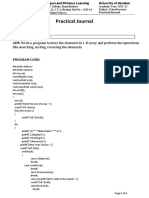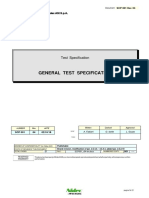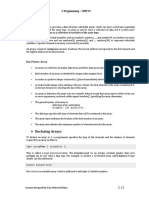0% found this document useful (0 votes)
51 views34 pagesData Structure Lab Mannual
The document is a lab manual for Data Structures, containing multiple programming exercises in C. It includes programs for finding the largest and second largest elements in an array, reversing an array, rotating an array, merging two sorted arrays, and implementing various data structures like sparse matrices and linked lists. Each program is accompanied by sample input and output to illustrate functionality.
Uploaded by
mohitsinghoi501Copyright
© © All Rights Reserved
We take content rights seriously. If you suspect this is your content, claim it here.
Available Formats
Download as PDF, TXT or read online on Scribd
0% found this document useful (0 votes)
51 views34 pagesData Structure Lab Mannual
The document is a lab manual for Data Structures, containing multiple programming exercises in C. It includes programs for finding the largest and second largest elements in an array, reversing an array, rotating an array, merging two sorted arrays, and implementing various data structures like sparse matrices and linked lists. Each program is accompanied by sample input and output to illustrate functionality.
Uploaded by
mohitsinghoi501Copyright
© © All Rights Reserved
We take content rights seriously. If you suspect this is your content, claim it here.
Available Formats
Download as PDF, TXT or read online on Scribd
/ 34
























































































